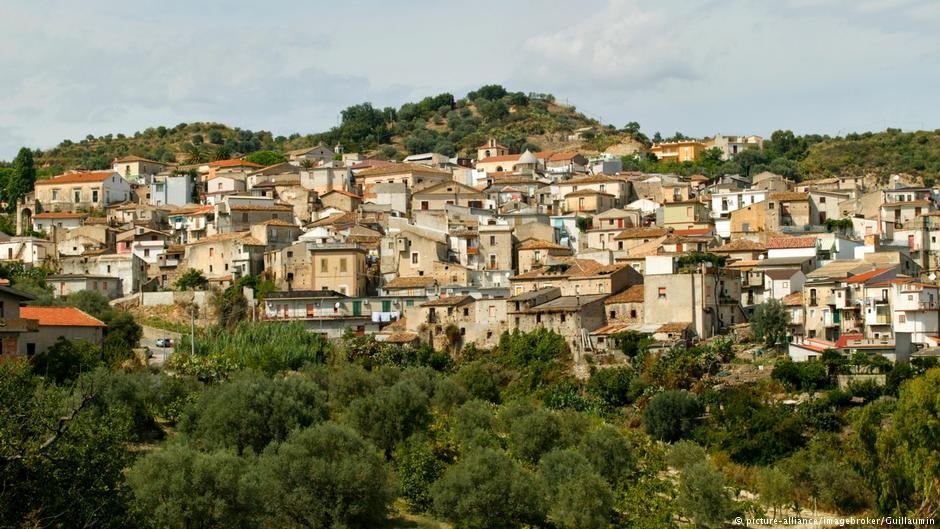Earlier this week, the council in the Italian city of Riace, in Calabria, rejected a request filed by the prefect's office in the region's capital Reggio Calabria, to disqualify the mayor Domenico "Mimmo" Lucano.
Italian politician and activist, Domenico "Mimmo" Lucano's various trials have been long and complicated. The latest round essentially began in 2017 after the prosecutor's office in the nearby town of Locri began investigating him on charges of abuse of public office, aggravated fraud and running an organization that was alleged to have cashed in on migrant reception. Although he was initially found guilty of some of those charges in the first instance and condemned to 13 years and two months in prison, later trials removed most of the guilty verdicts and eventually quashed his sentence.
His legal processes have run the whole gamut of the Italian justice system, an initial guilty sentence, quashed in a second trial, then an appeal which confirmed most of that second verdict, and finally a decision by Italy's highest appeal court the Court of Cassation, in which the judges upheld a decision made in 2023 by the appeal's court in Reggio Calabria, where Lucano's innocence was established.
The Court of Cassation also found that the evidence gathering for the trial, partly based on phone interceptions, should be declared inadmissible. However, the court did find him guilty on one count of having made a false declaration and issued a suspended sentence of 18 months. It is this that has led to the most recent legal processes.
For the moment, Domenico "Mimmo" Lucano will remain mayor of the Italian town of Riace, after a decision was made by the city council on April 8 to refuse the Italian prefect's request to suspend him. However, this might not yet be the end of the process.
Lucano's politics tend towards the left and he has stood both as an independent candidate, as well as most recently, for the European Parliament, for which he was elected in summer 2024, on the Green and Left alliance. He holds the offices of mayor in Riace and MEP for the European Parliament.
Read AlsoItaly: Prosecutors demand 10 years and 5 months for former Riace mayor
Interior ministry requested mayor's disqualification
After that court ruling in 2023, the prefect's office started a new process against the politician via the Severino law on anti-corruption. This allows the state to remove someone from office, if they have been found guilty of abuse of public office, even if the sentence is suspended.
Due to the final ruling, Lucano -- in the interior ministry's professional opinion -- should be designated unelectable.
Lucano was re-elected mayor of the Calabrian town of Riace for a fourth term last June. Since he was elected prior to the Court of cassation's ruling on February 12, he should thus be considered disqualified, according to the interior ministry.

However, the crime for which Lucano was found guilty does not require his immediate disqualification. Lucano's lawyer, Andrea Daqua, has in the past argued on behalf of his client that there are possible aggravating circumstances provided for by the relevant laws. If he had been found guilty of "having committed the crime through the abuse of power or with the violation of duties inherent in a public office or public service," then the lawyer argued, the ministry might have a point.
But in Lucano's case, the lawyer stated, "neither the sentence of the Court of Appeals of Reggio Calabria nor that of the Court of Cassation make any reference to any alleged abuse of power or violation of duties."
Read AlsoPro-refugee Italian mayor decries sentence
Appeals to the President?
In the city council meeting on April 8, in which the mayor himself did not take part, the council rejected the disqualification through a majority vote with one abstention and the absence of three opposition council members who had previously announced that they would not be present.
The issue, however, is not over. The regional prefect's office can take legal action and though no formal steps have apparently yet been taken to that end, the government's territorial office has announced that it will do so.
Lucano told ANSA that he "had had no doubts" that the city council would rule as it did and said he hopes that the matter "ends here. However, if the prefect's office, as already announced, takes action" against him remaining in the position, then "obviously I will seek to get my rights respected in all places that the law allows".
The politician continued: "In my case, the application of the Severino Law -- all lawyers and experts in administrative law agree -- is absurd. For this very reason we are thinking about calling on Italian president Sergio Mattarella."
